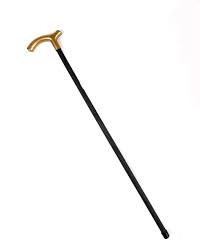cane
英 [keɪn]
美 [keɪn]
- n. 手杖;藤条;细长的茎
- vt. 以杖击;以藤编制
- n. (Cane)人名;(英)凯恩;(西、意)卡内;(塞)察内
使用频率:

记忆方法
1. canal, cannon, canyon, channel => cane.
中文词源
cane 甘蔗
来自拉丁词canna, 芦苇,后外延义甘蔗。
英语词源
- cane
-
cane: [14] Cane is a word of ancient ancestry. It can be traced back to Sumerian gin ‘reed’, and has come down to us via Assyrian kanū and Greek kánnā (a derivative of which, kánastron ‘wicker basket’, was the ultimate source of English canister [17]). Latin borrowed the word as canna, and broadened its meaning out from ‘reed, cane’ to ‘pipe’, which is the basis of English cannal, channel, cannon, and canyon. From Latin came Old French cane, source of the English word.
=> canal, canister, cannon, canyon, channel - cane (n.)
- late 14c., from Old French cane "reed, cane, spear" (13c., Modern French canne), from Latin canna "reed, cane," from Greek kanna, perhaps from Assyrian qanu "tube, reed" (compare Hebrew qaneh, Arabic qanah "reed"), from Sumerian gin "reed." But Tucker finds this borrowing "needless" and proposes a native Indo-European formation from a root meaning "to bind, bend." Sense of "walking stick" in English is 1580s.
- cane (v.)
- "to beat with a walking stick," 1660s, from cane (n.). Related: Caned; caning.
权威例句
- 1. In school, you knew if you misbehaved you would get the cane.
- 在学校不守规矩是要挨藤条的。
- 2. He stopped, shifting his cane to his left hand.
- 他停了下来,将手杖移到左手。
- 3. This sugar cane is quite a sweet and juicy.
- 这甘蔗既甜又多汁.
- 4. The quiz showed up Cane's weak points in physics.
- 这次测验看出了凯恩在物理学方面的弱点.
- 5. English schoolmasters used to cane the boys as a punishment.
- 英国小学老师过去常用教鞭打男学生作为惩罚.